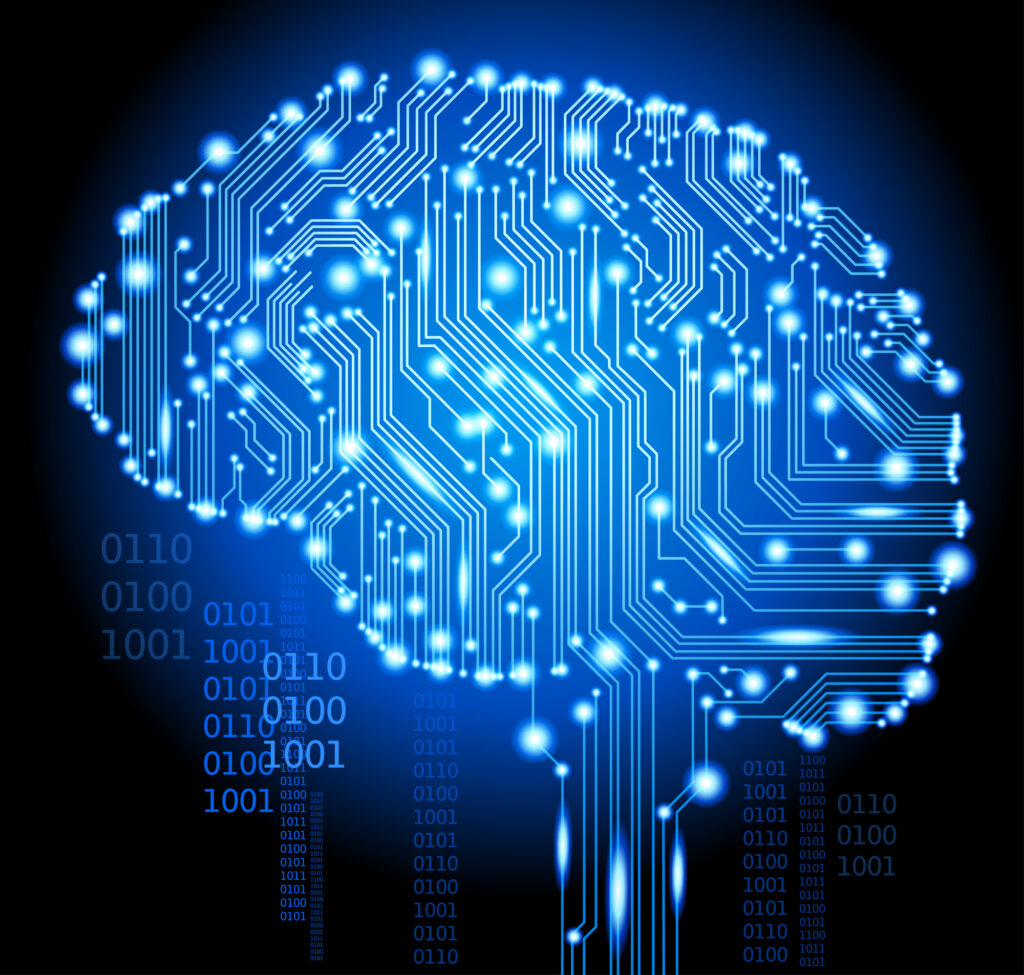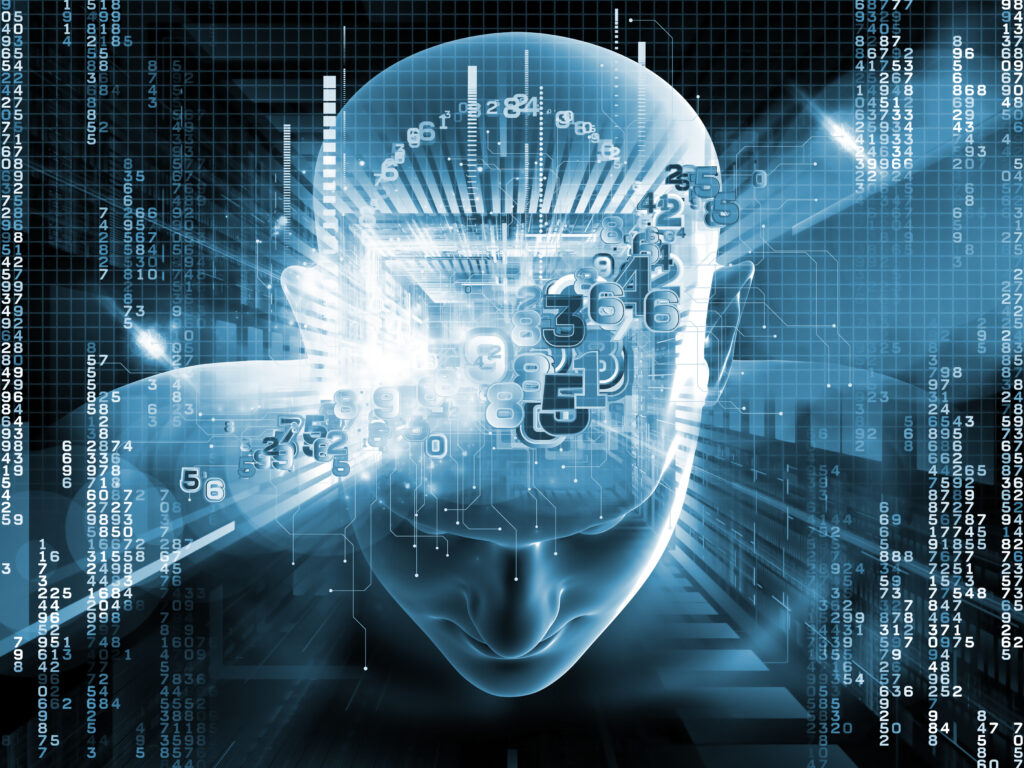Seemingly overnight, artificial intelligence (AI) writing became really…intelligent. It was quite frightening to learn that chatGPT created entire SEO articles which sounded very human-like.
How AI can be used to score and analyze leads
AI is still some way off replacing me, but I think that it will change the face of marketing. This will help you save time and make your campaign more engaging.
What is AI Marketing?
AI Marketing is about how AI can help achieve marketing goals. This includes creating and delivering targeted messages and chatbots that learn through interaction with their users.
By using AI, marketers can save time by creating campaigns and analyzing data manually. This increases the chances that customers will be exposed to content they like. It may thrill or upset them.

Artificial intelligence in marketing: Benefits
AI enhances the human intellect, making it more efficient and effective than ever.
Below are some concrete reasons for incorporating AI in your digital marketing campaign.
- AI saves time: AI can collect user data and provide insights in a fraction of the amount of time it takes a person to perform this task. Your team is free to focus on more critical tasks, such as developing campaign strategies and enhancing upcoming campaigns with AI.
- Fine-tunes customer personas should be the core of every marketing campaign. AI insights can help you better understand customers, and adjust personas to more accurately represent their needs.
- ChatGPT is a great way to spark your creativity. ChatGPT may create some absurd concoctions, like a silly jigsaw. You can use AI to generate creative ideas.
- Increases customer satisfaction. By learning users’ behavior, AI can anticipate their needs. You will have happier customers if you satisfy their needs. These facts should not be shocking.
AI Marketing Types
Marketing AI is not all the same. There are different types of AI, based on their intelligence. These range from simple tasks to complex machine learning. Most modern marketing software combines machine learning with automation.

Stand-alone automation apps
Automating tasks is powerful but doesn’t require the same level of intelligence that programs using machine learning do. Machine learning applications “learn” by interacting with them, but they don’t.
Examples of automated publishing tools that publish content automatically according to a set schedule and chatbots, which lead users through an interactive decision tree.
Apps to integrate automation
These apps also operate within a bigger system than standalone applications.
CRMs use integrated automation to assist with basic tasks, such as categorizing customers.
For example, If a customer subscribes to the small business version of an accounting application, they could automatically be labeled as a small business.
Stand-alone Machine Learning Apps
The magic is in machine learning. Apps that are stand-alone and use machine learning make decisions independently, using large data sets. More advanced machine learning tools can learn from user interaction to improve predictions.
Levels Of Complexity: High
Examples include tools that create customized plans for the users (such as a skincare regime based on facial analysis) and chatbots that analyze the behavior of a user to decide whether they should be transferred to a Customer Service Representative.
Apps that incorporate machine learning
Apps with machine learning can analyze user behavior quickly and offer the best offers.
Apps that are integrated provide insights without the need for users to request them.
High
Example An app that collects data about user browsing habits and purchases, such as a machine-learning application, could deliver highly targeted advertising.
AI marketing strategies: how to implement AI in digital campaigns
What are some AI applications that you can use to improve your everyday initiatives? My marketing colleagues and I came up with a few real-world AI cases. The next section will discuss some real-world AI applications.
- Targeting and Ad Enhancement: The AI uses historical data to optimize ads and help you make them more relevant to your audience. This information can be used to tailor your ads for each audience.
- ChatGPT can help you with content optimization and ideation: AI can be used to find inspiration for your marketing campaigns by pulling content from across the internet.
- Scaling Up A/B Tests: A/B testing can be time-consuming, especially if you have many options. With AI, you can compare multiple options in seconds. You can use AI to select the best choice for your website layout, copy, CTA, etc.
- Scraping Pages: You can also use it for scraping web pages to find posts and responses on forums and social media.
- NMT: NMT is not the only option for multilingual campaigns. We use it in our company and have found it better to check accuracy with a native speaker.
- Chatbots that are intelligent and can serve as customer service representatives: Many of us have been disappointed by a bot’s inability to understand our needs and transfer the user to an agent. Through machine learning, bots will be able to determine when they should send a client to a representative.
AI examples in marketing
Now let’s apply what we learned. There is no homework! These are ways in which various industries today or tomorrow use AI to enhance their processes and satisfy customers.
- Personalization of the Experience: A video streaming service could collect data on browsing habits and user viewing patterns to determine which titles are most appealing and predict whether a thumbnail is likely to be clicked by a viewer.
- Predictive lead scoring: A SaaS company might utilize AI to manage leads and quickly rank and qualify them. They could then better allocate the sales staff’s time to the leads with the greatest conversion potential.
- Research in marketing… Data centers with AI can be accessed by multinational corporations that specialize in snack food to get data on the preferences of the different types of snacks across the world.
- Adjusting Prices: A grocery store can adjust prices based on real-time information about competitive pricing. It will help them to gain a better position in the marketplace.

AI Implementation Challenges
AI marketing is not always rainbows and butterflies. We’ll explore some of the issues.
- Confusion problems: AI requires talent and expertise. Not only must the team implement AI, but they also need to understand how AI can be configured for existing workflows.
- Connection: The connection between human talent and robots.
- Customers’ anxiety: If you ask the general public whether they feel comfortable about Big Brother watching their digital activity, I am sure that the vast majority would answer “no”. The AI is based on the collection of data from consumers and the analysis of it to gain insights. To avoid financial and legal problems, respecting the privacy of the users while deploying AI is essential.
- Data of high quality is needed: AI, especially in marketing machine learning, requires a large amount of data and time.
AI Platforms for Marketing
Don’t misunderstand, there isn’t a single “AI platform”, which can meet all of your requirements. Every platform serves a different purpose. It is possible that, with the advancements in AI technology, every platform will eventually use AI.
- Find out where you have gaps and opportunities: Can automating certain tasks save time? Is there a sub-department missing in your marketing department? Focus your efforts on AI initiatives that are most likely to impact your bottom line.
- AI can be used in different ways. Some platforms help to optimize content for blogs, and others personalize campaigns. Be on the lookout for new AI applications.
- Compare the costs of the tool with its estimated return.
AI Marketing FAQ
AI can be expensive and complicated. Marketing leaders should ask themselves these questions when they decide whether or not to implement AI into their business processes.
How can AI be used to improve marketing campaigns?
Artificial intelligence is being used for almost all aspects of marketing. This technology is used to analyze and collect data, predict and make decisions using the information, personalize messages, optimize content, and much more.
What is the AI Marketing Benefit?
Companies with the funds and who want to enjoy a personalized and faster experience can benefit from AI marketing.
What is AI Marketing?
These tools include chatbots, content personalization tools, and optimization software.
AI has a rapid impact on the operations of organizations. Within a few years, AI will have impacted almost every field. Do not fall behind. Stay on top of trends, and incorporate AI into the marketing strategies for your company.